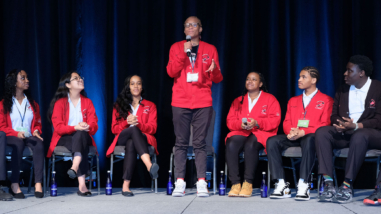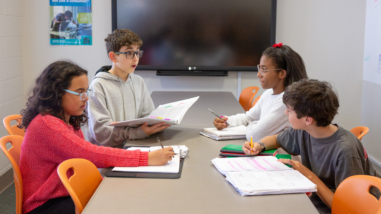Georgetown University
For Georgetown Climate Center's Clean Energy And Transportation Programs
-
Amount$300,000
-
Program
-
Date Awarded9/3/2020
-
Term12.0 Months
-
Type of SupportGeneral Support/Program
Overview
The Georgetown Climate Center, based within Georgetown University Law Center, provides coordination, communication, and technical support across a number of states moving forward with climate and clean energy policies. By helping to enable these state actions and sharing their stories, the Climate Center also helps promote wider sub-national leadership in the U.S., and signals to the rest of the world that the U.S. remains capable of meeting its climate commitments. (Substrategy: U.S. National Policy)
About the Grantee
Grantee Website
www.georgetown.edu
Address
Main Campus Office of Research Services
Box 571014 650 ICC, Washington, DC, 20057-1168, United States
Grants to this Grantee
for the Georgetown Climate Center
The Georgetown Climate Center advances ambitious and equitable government responses to the climate crisis in the U.S. at the national, state, and local levels. The center supports state efforts to accelerate the deployment of clean electric power generation; advances policies and practices, at the federal and state levels, to ensure that transportation dollars are achieving low-carbon outcomes; and builds markets for lower-carbon cement and concrete used for transportation. (Substrategy: U.S. National Policy)
for Congressional Staff Digital Government Fellowship
Georgetown's McCourt School of Public Policy trains future leaders and conducts policy-relevant research in a multidisciplinary setting. This grant supports a pilot six-week Digital Government Policy Fellowship for Congressional staff. (Substrategy: Legislative Branch)
for support of the Center on Gender Justice & Opportunity
The Center on Gender Justice & Opportunity at Georgetown Law works to eliminate gender and racial disparities for girls. This grant will support the center to develop an implicit bias training for educators aimed at reducing the unjust, disproportionate rates of school-based exclusionary discipline experienced by Black girls, thereby improving their access to more equitable learning environments. (Substrategy: Educator Capacity)



